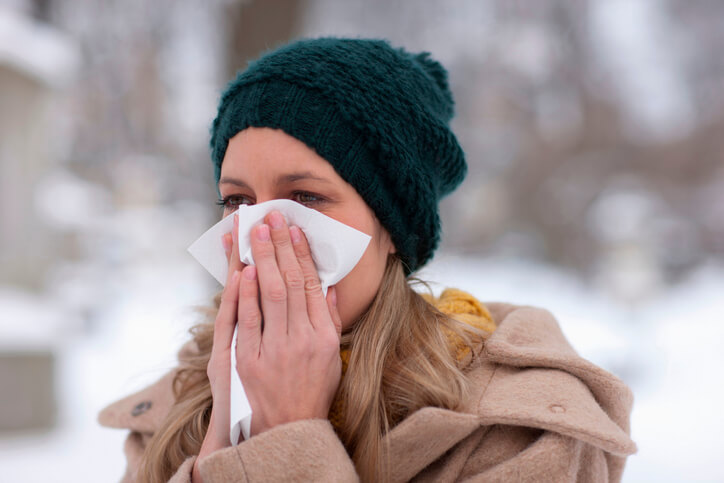What Is the Bird Flu?

Bird flu is an infection from a type of virus that primarily affects birds, cows and other animals, both domesticated and wild. Also called avian influenza, the disease can sometimes spread to humans. Human cases of bird flu are rare. Still, it’s helpful to understand the risk.
This article covers bird flu symptoms, risk factors, diagnosis, treatment and prevention.
Bird Flu Symptoms
Bird flu symptoms range from mild to severe. In very rare instances, the condition has been fatal in humans.
People with bird flu may experience some or all of the following symptoms:
- Fatigue
- Stuffy or runny nose
- Fever
- Cough
- Sore throat
- Muscle aches
- Conjunctivitis (pink eye)
- Nausea
- Vomiting
- Diarrhea
- Shortness of breath
Most recent cases of bird flu in the U.S. have caused mild respiratory issues and pink eye.
Bird Flu Risk Factors
Anyone can get bird flu. However, you’re more likely to contract the virus if you work with or have recreational exposure to animals like chickens, ducks, geese or dairy cows. People who have had no contact with infected animals or contaminated surfaces are thought to be at very low risk of infection.
Bird Flu Complications
Bird flu typically causes the symptoms listed above. However, it can cause severe illness in humans in some instances. Potential bird flu complications include:
- Bacterial infections
- Pneumonia
- Acute respiratory distress or respiratory failure
- Brain swelling
- Sepsis (an extreme immune system response to an infection)
How Is Bird Flu Diagnosed and Treated?
Doctors test for bird flu by swabbing your throat or nose and determining if the bird flu virus is present in the collected material. They may also sample material from around your eye.
Labs don’t necessarily test all positive swabs for bird flu specifically, so it’s important to let your doctor know you’ve been in contact with birds, cows or other potentially infected animals. They will then ask the lab to conduct a special test for bird flu.
If you have bird flu, your doctor can prescribe antiviral medications.
How To Avoid Bird Flu
Your risk of contracting bird flu is low if you aren’t typically around poultry, waterfowl or cows. If you are around those animals, here’s what you can do to lower your bird flu risk:
- Avoid sick and potentially infected animals. You shouldn’t work with animals that are known to be infected or that have been exposed to the bird flu virus.
- Wear protective clothing. A mask, goggles and gloves can help prevent the virus from getting onto and into your body.
- Wash your hands frequently. Keeping your hands clean helps protect you from bird flu. Handwashing is especially important after handling wild animals or livestock or visiting areas where those animals live, including farms or areas frequented by ducks or geese.
- Take your shoes off outside. If you’ve been around chickens, waterfowl or livestock, leave your shoes outside to avoid tracking droppings into your home. The same is true of other clothing items that may be contaminated (coats, hats, etc.).
- Avoid unpasteurized milk. You shouldn’t consume or touch milk that hasn’t been pasteurized.
- Get a seasonal flu shot. The shot won’t prevent bird flu, but it can reduce your risk of serious illness that can impact your immune system and lower your defenses against bird flu.
When To See Your Doctor
If you work or spend recreational time around animals that might be carrying bird flu, talk with your doctor about prevention strategies. If you’ve been exposed to bird flu (or think you might have been) and develop any of the symptoms listed above, contact your doctor to discuss diagnosis and treatment.
Don’t have a Baptist Health doctor? You can find one in our online provider directory.
Next Steps and Useful Resources
Learn More About Infectious Diseases
How Is Bird Flu Transmitted to Humans?
Preventing Infectious Disease


.jpg?rev=f59f3f2e0f3f487b8eb5863dcf9df0c2)
.jpg?rev=bc8c454fc52840fe9ced0229d90f1f49)